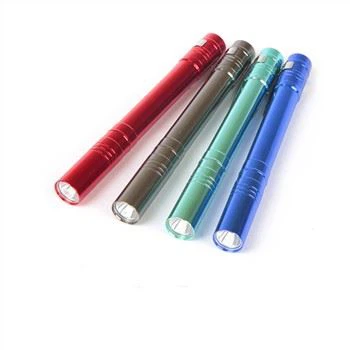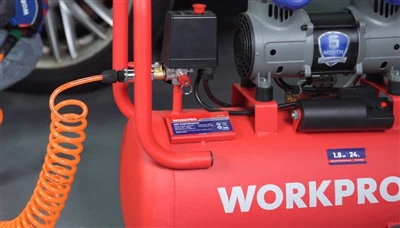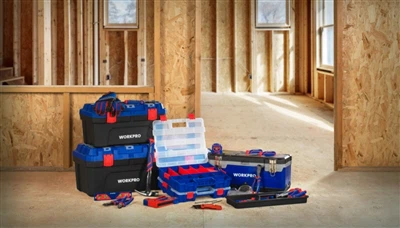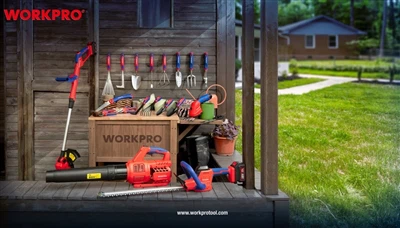Are you about to embark on a new career or project that involves precise measuring? Are you uncertain which measuring tools you need before getting started? Look no further! We have compiled a comprehensive list of essential measuring tools to ensure you are fully equipped for the task ahead. Let's dive in and discover what you need to add to your shopping list.
TYPES OF MEASURING TOOLS AND THEIR USES
We understand that you don't want a simple laundry list of measuring tools. You likely have specific
applications in mind and need to know which tools are best suited for those purposes. Alternatively, you might want to confirm that the tools you already have are appropriate for your job. So, let's provide you with the information you need to make informed decisions.
First, let's explore some of the most commonly used measuring tools and their applications:
-
Tape Measures: Ideal for measuring length, width, and height, tape measures are essential for construction, interior design, and DIY projects.
-
Calipers: Used for measuring the distance between two opposite sides of an object, callipers are crucial for precision in fields like machining, metalworking, and engineering.
-
Micrometers: These tools offer high precision for measuring small dimensions and are indispensable in mechanical engineering and manufacturing.
-
Laser Measures: For quick and accurate distance measurements, laser measures are perfect for surveying, real estate, and large-scale construction projects.
-
Levels: Ensuring surfaces are perfectly horizontal or vertical, levels are vital for carpentry, masonry, and any task requiring precision alignment.
-
Protractors: Essential for measuring angles, protractors are commonly used in drafting, woodworking, and metalworking.
-
Rulers and Straightedges: Simple yet effective, these tools are fundamental for drawing straight lines and measuring short distances in various disciplines, including graphic design and technical drawing.
-
Gauges: These come in many forms, such as thickness gauges, pressure gauges, and feeler gauges, and are used to measure dimensions, pressure, and gaps in a wide range of industries.
TYPES OF PRECISION MEASURING TOOLS
Our first visit is the precision measuring tools, which are used for a variety of purposes including machining and fabrication, quality control, electronics manufacturing, laboratory research, mapping, medicinal applications, and many more. But why do these jobs require precision measuring tools?
-
Reducing errors and waste.
-
Ensure safety.
-
Repetition and consistency
-
Meets industry norms.
-
Advances in technology

Bore Gauges
Bore gauges are precision instruments specifically designed for measuring the internal diameter of holes, bores, or cylinders. These gauges are crucial in various industrial applications where accurate internal measurements are required, such as in the manufacturing and maintenance of engines, hydraulic systems, and other machinery.
Dial Test Indicators (DTI)
Dial Test Indicators, commonly referred to as DTIs, are used for measuring small linear distances or detecting small variations in surface flatness. These instruments are essential in the fields of precision engineering and machining, where they ensure that surfaces are within specified tolerances, contributing to the accuracy and quality of the final product.
Height Gauges
Height gauges are utilized to measure the vertical distance between a reference surface, typically a flat base, and a specific point on the object being measured. These gauges are fundamental in quality control and inspection processes in manufacturing, allowing for precise measurement of component heights and ensuring conformity to design specifications.
Depth Gauges
Depth gauges are precision tools designed to measure the depth of slots, holes, and recesses in a workpiece. These measurements are critical in various machining and fabrication processes, ensuring that components fit together correctly and function as intended.
Gauge Blocks
Gauge blocks, also known as Jo blocks or slip gauges, are precision-machined blocks made of metal or ceramic. They are used for setting and calibrating other measuring instruments and for making highly accurate measurements. Gauge blocks are a cornerstone of dimensional metrology, providing a standardized reference for length measurements in manufacturing and engineering.
Coordinate Measuring Machines (CMM)
Coordinate Measuring Machines (CMM) are advanced tools used to measure the complex geometrical characteristics of three-dimensional objects with high precision. These machines are essential for quality control and product development in industries such as aerospace, automotive, and electronics, where precise measurements of intricate components are critical.
Laser Measurement Tools
Laser measurement tools, including laser distance meters and laser scanners, are used for measuring distances and creating digital profiles of objects. These tools are invaluable in fields such as construction, surveying, and manufacturing, providing accurate and efficient measurement capabilities that enhance productivity and precision in various applications.

Basic Measurement Tools:
-
Rulers: Fundamental for precise linear measurements in smaller increments.
-
Tape Measures: Ideal for longer distances and curved surfaces due to their flexibility and extended reach.
-
Folding Rules: Portable and convenient for on-the-go projects, offering both metric and imperial measurements.
-
Squares: Essential for ensuring right angles and levelling, available in various types like framing squares for larger projects and combination squares for versatility.
-
Protractors: Used for measuring and transferring angles accurately, crucial for tasks involving precise angular alignments.
-
Each type of measuring tool serves a specific purpose in a workshop setting, ensuring efficiency and accuracy across different types of projects.

TYPES OF MEASURING TOOLS FOR ELECTRICAL WORK
Precision is paramount in electrical work for safety and compliance. Essential measuring tools include:
-
Multimeters (Digital or Analog): Used to measure voltage, current, and resistance in electrical circuits, indispensable for troubleshooting and installation.
-
Voltage Testers (Non-Contact): Safely determine live circuits without direct contact, ensuring safety during electrical inspections.
-
Clamp Meters: Measure electrical current without disconnecting conductors, essential for assessing load and power consumption.
-
Ohmmeters: Measure electrical resistance in circuits and components, vital for diagnosing faults and ensuring circuit integrity.

-
Ground Resistance Testers: Measure ground system resistance, ensuring compliance with safety standards and efficient grounding.
-
Tachometers: Measure rotational speed in motors and generators, critical for assessing equipment performance and troubleshooting issues.
-
LUX Meters: Measure light intensity in workspaces and environments, ensuring adequate lighting levels per safety and operational standards.
-
Wire Gauges (AWG): Identify wire diameters, essential for selecting appropriate wire sizes based on electrical load and application requirements.









